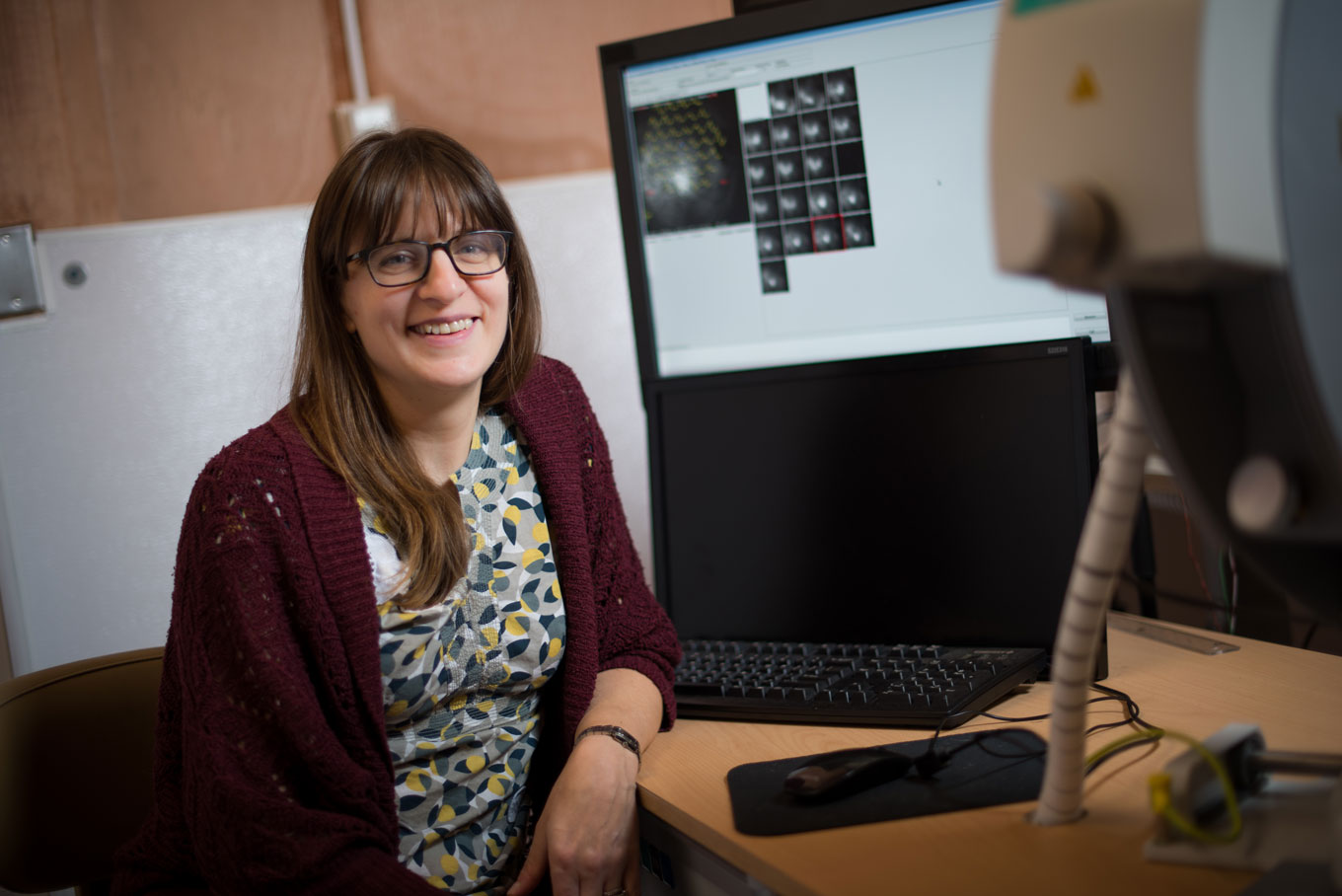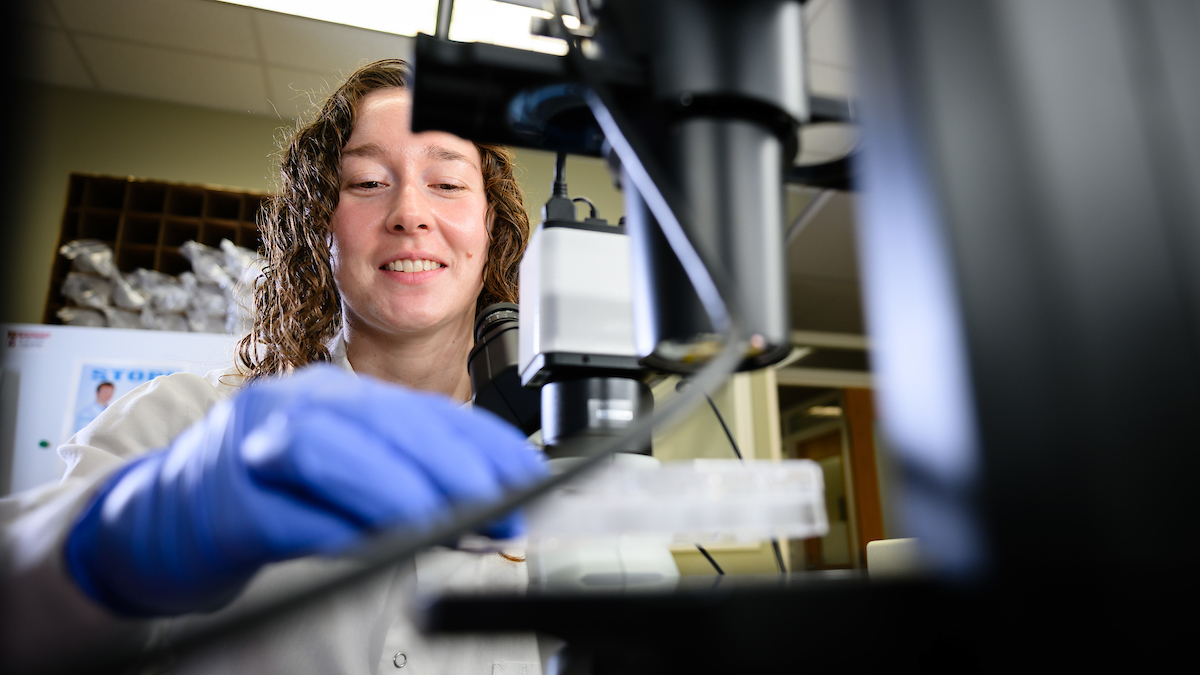Mowat Earns NIH Career Grant for Innovative Eye Research

Freya Mowat, assistant professor of ophthalmology at the NC State College of Veterinary Medicine, is the recipient of the prestigious National Institutes of Health Mentored Research Career Development Award in support of her work developing new treatments for animal and human eye diseases.
The four-year, $640,000 grant supports clinician-scientist Mowat’s long-term career goals in comparative ophthalmology and molecular genetics, particularly her focus on developing treatments for blindness caused by age-related macular degeneration.
In the short term, the grant funds a new research project on the impact of hydroquinone, a toxicant found in cigarette smoke, on ocular mitochondrial density and how mitochondrial health influences the eyes’ photoreceptors, the cells in the retina that respond to light and tell the brain what the eyes are seeing. Mitochondria are the energy powerhouses of cells, and mitochondrial diseases impact multiple parts of the eye.
The career development award allows Mowat to devote more time to attending conferences and lectures and diving into diverse training opportunities on topics such as toxicology, electron microscopy and mitochondrial biology. Ultimately, she will publish her study findings and submit a research grant proposal to the National Eye Institute, a division of the NIH.
Our work will have relevance to both human and animal health, as understanding the processes of aging and toxicant exposure in the retina will benefit both us and our patients. ~Freya Mowat
For the new research project, Mowat will explore whether exposure to hydroquinone also leads to age-related macular degeneration, or AMD. It’s the type of vital information needed to develop new treatments for AMD, a common blinding disease in older humans that will become an increasing problem as the globe’s population ages, said Mowat.
“It’s a complex disease composed of genetic, environmental influences and aging as risk factors,” said Mowat. “The genetic components are becoming better understood, but many of the environmental and age-related factors are hard to model.”
That’s where Mowat’s research comes in. AMD comes in two forms: “wet,” the formation of excessive blood vessels, and “dry,” the degeneration of the retina’s cells. Mowat said there are currently effective treatments for wet AMD, but the form only accounts for 10 to 20 percent of AMD cases. The dry form has no treatments, she said, apart from antioxidant supplements that slow progression.
Mowat also hopes to provide insight into why the macula, the central part of the retina and the eye’s sharpest vision area, suffers most from the dry form of AMD. She will explore how the proteins in a mitochondrial regulator, PGC-1alpha, protect mitochondria and photoreceptors, which could also reveal important targets for new treatments.
Mowat, who joined the CVM in 2015, is a board-certified veterinary specialist with both the American and European colleges of veterinary ophthalmologists. Her CVM lab focuses on the causes and treatments of canine blindness, as well as the inherited degeneration of the retina.
Her impactful research includes a two-year study into Sudden Acquired Retinal Degeneration Syndrome, or SARDS, in dogs. A current project is monitoring an inherited form of blindness in the critically endangered red wolf. The remaining population of red wolves living in the wild — only around 40 — are all in North Carolina.
For more information on Freya Mowat’s research, go here.
For more information on the NC State Veterinary Hospital’s small animal ophthalmology service, go here.


